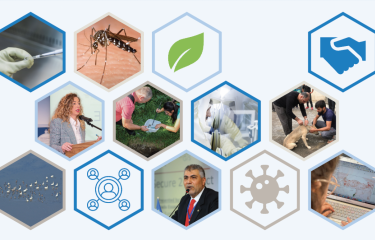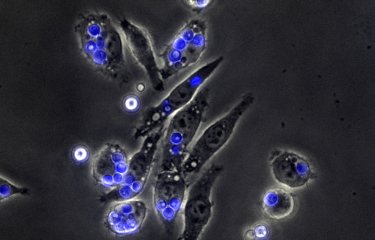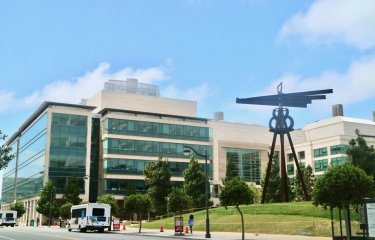On July 4, the Institut Pasteur, an internationally renowned center for biomedical research and a French non-profit foundation specialized in infectious diseases, has inaugurated the Pasteur-USP Scientific Platform in the University of São Paulo Research and Innovation Center (Inova USP) which is hosting 17 laboratories dedicated to innovation. This platform will focus on the study of pathogens for preventing epidemics, and act as an emergency intervention cell. The 1,700 square-meter area will house the first Biosafety Level-3 research laboratories aligned with international standards, where high-risk pathogens will be studied. The expected investment is around R$ 40 million, with R$ 15 million for equipment.
In line with the scientific partnership agreement, signed in June 2015, between the Institut Pasteur, the University of São Paulo - USP, and the Oswaldo Cruz Foundation (Fiocruz), research studies carried out on the platform will focus on emerging pathogenic agents whose infections can damage the central nervous system, such as the Zika virus, dengue, yellow fever, and influenza, as well as protozoa, such as trypanosomes that causes sleeping sickness. The main objective will be to develop methods for preventing epidemics of these diseases.
“Over the past 80 years, USP has had no initiative like this one. We are working on the internationalization of research, instruction, and innovation,” said Luís Carlos Ferreira, USP’s Director of the Institute of Biomedical Sciences (ICB). He will coordinate the platform along with Paola Minoprio, Director of Research at the Institut Pasteur, who came to Brazil for this purpose. According to Paola Minoprio, the choice of USP to host the platform was based on the institution’s relevance and global impact in terms of scientific research. “The Institut Pasteur’s lines of research are very similar to those of the ICB-USP and the two institutes have already worked on collaborative projects,” she explains. The institutes share common areas of research in Immunology, Cell Biology, Microbiology, and Parasitology.
Biosecurity – 4 laboratories out of the 17 of the platform will be at biosecurity level 3 for the study of microorganisms that present a high individual risk and a moderate risk to the community. In other words, they can transmit and cause potentially lethal diseases, but have recognized prevention and treatment measures. The 200 square-meter facilities consist of four individual pressure chambers to ensure containment, and have controlled access. The researchers who will work on the platform will also be trained in security procedures.
Eight senior researchers have already been selected by the partners: Paola Minoprio (Institut Pasteur in Paris – Department of Global Health – coordinator of the Plateform), Paolo Zanotto (ICB-Microbiology), Edison Durigon (ICB-Microbiology), Patrícia Beltrão Braga (USPLeste/ICB), Jean Pierre Peron (ICB-Immunology), Eduardo Massad (FM-USP), Helder Nakaya (FCF-USP), and Pedro Teixeira (ENSP-Fiocruz). All the partners will maintain ties with their original units and will dedicate part of their research to the platform. As of 2020, three more groups of young researchers will be selected to join the staff. In all, it is expected that the platform will have from 80 to 100 researchers.
The inauguration of the Pasteur Scientific Platform-USP took place during the Pasteur International Network association’s Americas Regional Meeting and had the support of the French government, the São Paulo Research Foundation (FAPESP), and Thermo Fisher Scientific, an American company that develops biotechnological products that will also supply part of the equipment of the Platform laboratories.
The Pasteur International Network association’s Americas Regional Meeting
The Regional meetings of the Institut Pasteur International Network are organized by the Pasteur International Network association. It is the first time that it is hosted by an entity external to the Institut Pasteur International Network.
Researchers from the Network (Canada, Bresil, Uruguay, Guadeloupe, French Guyana) and from others countries (Perou, Colombia,Argentina, Chili, Costa Rica) were present at USP, from July 3 to 5, 2019. During this regional meeting, a scientific conference was held to share and discuss subjects related to emergence and to antimicrobial resistance in the region and a brainstorming was carried out to address the issue of arbovirus emergences in Latin America.
More information about the regional meeting on the Institut Pasteur de la Guyane website.
About the Institut Pasteur and the Institut Pasteur International Network: The Institut Pasteur, a non-profit foundation with recognized charitable status set up by Louis Pasteur in 1887, is today an internationally renowned center for biomedical research with a network of 32 institutes worldwide. In the pursuit of its mission to prevent and control diseases in France and throughout the world, the Institut Pasteur operates in four main areas: research, public health, education and training, and development of research applications. More than 2,600 people work on its Paris campus. The Institut Pasteur is a globally recognized leader in infectious diseases, microbiology, and immunology. Other avenues of investigation include cancer, genetic and neurodegenerative diseases, genomics and developmental biology. This research aims to expand our knowledge of the living world in a bid to lay the foundations for new prevention strategies and novel therapeutics. Since its inception, 10 Institut Pasteur scientists have been awarded the Nobel Prize for Medicine.
About the ICB-USP: Considered to be one of Brazil’s best university-level institutions in its area, the Institute of Biomedical Sciences of the University of São Paulo (ICB-USP) is an international reference in basic and transitional research. In its more than 150 laboratories, projects are being developed with high quality and a social impact on human and animal health. With six of its own post-graduate programs, and another three multi- institutional ones, the ICB has a staff of 167 instructors and 266 administrative and laboratory technicians, in association 113 post-doctoral researchers and 819 graduate students. Its instructors are highly productive, scientifically, with around 600 publications, annually, in highly impactful periodicals. The ICB is the sixth largest unit in USP in number of patents filed with the INPI and is among the top three research units in the State of São Paulo, with the most funding received from FAPESP.







